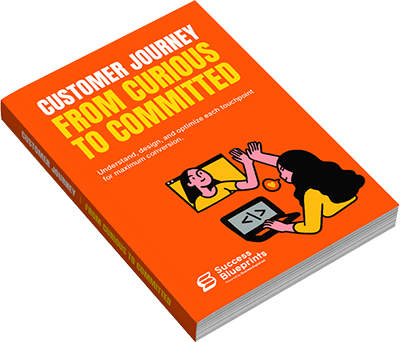Table of Contents
In today’s competitive digital landscape, one-size-fits-all marketing is no longer effective. Consumers expect personalized experiences, and businesses must meet these expectations by crafting tailored marketing strategies.
Tailored marketing, or tailor-made or personalized marketing, helps brands create meaningful connections with their target audience, enhancing engagement and loyalty. In this blog, we will explore the concept of tailored marketing, its importance, benefits, strategies for creating a tailored marketing plan, and real-world examples of how businesses use it to drive results.
What is Tailored Marketing?
Tailored marketing, sometimes called tailor-made marketing, refers to creating personalized marketing campaigns that resonate with specific customer segments or individual customers. It focuses on delivering the right message to the right person at the right time by leveraging data and insights to understand customer behavior, preferences, and needs. This approach differs from mass marketing, which employs a generalized message intended to appeal to a broad audience.
The foundation of tailored marketing lies in data collection and analysis. Businesses can gather customer information through various digital tools, including demographics, purchasing behavior, browsing history, and engagement patterns. By analyzing this data, companies can segment their audience and create custom messages that align with each segment’s unique characteristics and preferences.
Key Elements of Tailored Marketing
- Data-driven insights: A tailored marketing strategy requires understanding consumer data to inform marketing decisions. This includes collecting information from website interactions, email campaigns, social media activity, and previous purchasing behavior.
- Segmentation: Tailored marketing involves dividing the broader audience into specific segments based on similar characteristics, such as age, location, gender, or buying habits.
- Personalization: Creating content that speaks directly to individual needs, desires, and pain points increases engagement. Personalized content can range from customized emails to dynamic website content and tailored advertising.
Statistics from McKinsey indicate that 80% of customers are more likely to make a purchase from brands that offer personalized experiences, demonstrating the growing consumer demand for tailored marketing. This shift toward individualized content highlights the importance of adopting a tailored marketing strategy to remain relevant and competitive.
Why is Tailored Advertising Important?
Tailored advertising is pivotal in today’s marketing environment because consumers are bombarded with brand messages across multiple platforms. As attention spans shrink, capturing the interest of potential customers becomes increasingly challenging.
Tailored advertising, or tailor-made advertising, addresses this issue by providing content that resonates with the individual, making them more likely to engage with a brand’s offerings.
Consumer Expectations
One of the key drivers behind the importance of tailored advertising is the shift in consumer expectations. Modern consumers expect brands to understand their preferences and provide personalized solutions.
As we said, 80% of consumers are more likely to purchase from a brand that provides a personalized experience. Additionally, most consumers are likelier to shop with brands that recognize, remember, and offer relevant recommendations.
Improving Customer Experience
Tailored advertising improves the overall customer experience by offering relevant and meaningful content. Whether through personalized email campaigns, social media ads, or targeted search engine ads, tailored advertising ensures that customers are exposed to content that matters to them. This relevance enhances the user experience, making interactions with the brand more engaging and enjoyable.
Increased Engagement and Conversion Rates
Customers who receive content that aligns with their interests are more likely to engage with the brand. Tailored advertising has been shown to increase click-through rates (CTR) and conversion rates. Businesses can drive higher engagement and ultimately increase sales by delivering content that speaks directly to the customer’s needs.
What are the Benefits of Tailored Marketing?
Tailored marketing offers several benefits for businesses aiming to enhance customer relationships and drive results. Companies can build stronger connections with their audience by creating content that speaks directly to individual preferences and pain points.
#1 Enhanced Customer Loyalty
One of the most significant benefits of tailored marketing is its ability to foster customer loyalty. Customers who feel that a brand understands and values their preferences are more likely to develop a lasting relationship with the company.
Personalization demonstrates that the brand is focused on creating an experience that meets their individual needs, leading to increased brand loyalty. According to a Porch Group report, most consumers are willing to share personal data in exchange for personalized offers and discounts.
Read our ebook Customer Relationship Explained and learn all about the importance of understanding consumers’ needs and preferences.
#2 Higher Return on Investment (ROI)
Tailored marketing strategies often lead to a higher return on investment than traditional marketing approaches. By targeting specific customer segments with personalized content, businesses can maximize the efficiency of their marketing campaigns.
Rather than spending resources on mass marketing efforts that may resonate with only some of the audience, companies can focus on engaging the most relevant customers. Research by Aberdeen Group found that personalized marketing delivers an 88% increase in business results.
#3 Improved Customer Retention
Tailored marketing strategies help attract new customers and improve customer retention. By continuously offering personalized experiences, businesses can keep their existing customers engaged and satisfied.
This is especially important in a world where customers have more choices than ever before. Providing a unique and relevant experience helps differentiate a brand from competitors and keeps customers returning.
#4 Better Customer Insights
Tailored marketing relies heavily on data, meaning businesses have access to a wealth of information about their customers. This data can provide valuable insights into customer behavior, preferences, and trends, allowing companies to make informed decisions. By analyzing data from past interactions, businesses can refine their marketing strategies, making them even more effective over time.
How to Make a Tailored Marketing Strategy
Creating an effective, tailored marketing strategy involves several key steps. These steps help ensure the content resonates with the target audience and aligns with their unique preferences.

#1 Collect and Analyze Customer Data
The first step in developing a tailored marketing strategy is to gather and analyze customer data. This includes information such as demographics, purchasing behavior, website interactions, and social media activity. Tools such as Google Analytics, customer relationship management (CRM) systems, and social media analytics platforms can provide valuable insights into customer preferences.
Data collection should not be limited to surface-level information. To create a truly tailored marketing experience, businesses need to understand their customers’ deeper motivations and pain points. This can be achieved through surveys, feedback forms, and customer interviews.
#2 Segment Your Audience
Once you have gathered sufficient data, the next step is to segment your audience. Segmentation allows you to divide your customer base into smaller groups based on shared characteristics.
For example, you could segment customers by age, location, interests, or buying behavior. Creating distinct customer segments allows you to tailor your marketing messages to resonate with each group more effectively.
#3 Develop Personalized Content
Personalization is the cornerstone of a tailored marketing strategy. After segmenting your audience, develop content that speaks directly to the needs and preferences of each segment. This could include personalized emails, targeted ads, or dynamic website content that changes based on the visitor’s behavior.
It’s essential to strike a balance between personalization and privacy. While customers appreciate tailored experiences, they expect brands to respect their privacy and handle their data responsibly. Ensure your marketing efforts comply with data privacy regulations such as the GDPR (General Data Protection Regulation).
#4 Leverage Automation Tools
Automation plays a crucial role in executing tailored marketing strategies efficiently. Marketing automation tools such as HubSpot, Marketo, and Mailchimp allow businesses to send personalized messages at scale. These tools can help deliver the right content to the right customer at the right time by automating email campaigns, social media posts, and ad targeting.
#5 Monitor and Optimize Your Strategy
The final step in creating a tailored marketing strategy is monitoring its performance and continuously adjusting as needed. Use analytics tools to track the success of your campaigns, measure engagement, and identify areas for improvement. Tailored marketing is an ongoing process, and strategies should evolve based on changing customer preferences and market trends.
Tailored Marketing Examples
Successful companies have implemented personalized marketing strategies to enhance customer engagement and drive business results. Below are a few examples of how businesses have used personalized marketing to their advantage.
Amazon’s Personalized Recommendations
Amazon is a prime example of a company that excels in tailored marketing. By leveraging data from customer browsing history, past purchases, and search queries, Amazon delivers personalized product recommendations to each user.
These recommendations are tailored to the individual’s preferences, making it easier for customers to find products they are likely to purchase. This personalized experience contributes significantly to Amazon’s success, with research showing that 35% of the company’s revenue comes from its recommendation engine.
Netflix’s Tailored Content
Netflix uses a similar approach to Amazon by tailoring its content recommendations based on user behavior. By analyzing viewing history, ratings, and search activity, Netflix suggests movies and TV shows likely to interest the user.
This tailored approach keeps viewers engaged and encourages them to spend more time on the platform. According to Netflix, its personalized recommendations save over $1 billion annually in customer retention costs.
Spotify’s Customized Playlists
Spotify takes it a step further with its “Discover Weekly” playlists. Using data from users’ listening habits, Spotify creates personalized playlists that are updated weekly.
These playlists are designed to introduce users to new music they may enjoy based on their previous listening history. This tailored approach helps Spotify retain users and keeps them engaged with the platform for longer.
Tailored marketing is no longer a luxury but a necessity in today’s digital landscape. By delivering personalized customer experiences, businesses can build stronger relationships, improve engagement, and drive higher conversion rates.
Tailored marketing strategies, such as data collection, segmentation, and content personalization, help companies meet consumer expectations and stand out from competitors. Brands like Amazon, Netflix, and Spotify have already shown the immense potential of leveraging data-driven insights to create unique customer experiences.
To succeed with tailored marketing, businesses must stay committed to continuously analyzing customer data, refining their approach, and respecting privacy regulations. By implementing tailored marketing strategies effectively, companies can enhance customer loyalty, boost ROI, and foster long-term success in a competitive market. Now is the time to embrace tailored marketing and create meaningful, personalized interactions that resonate with your audience.


 Risk-free Purchase: Full refund within 14 days
Risk-free Purchase: Full refund within 14 days